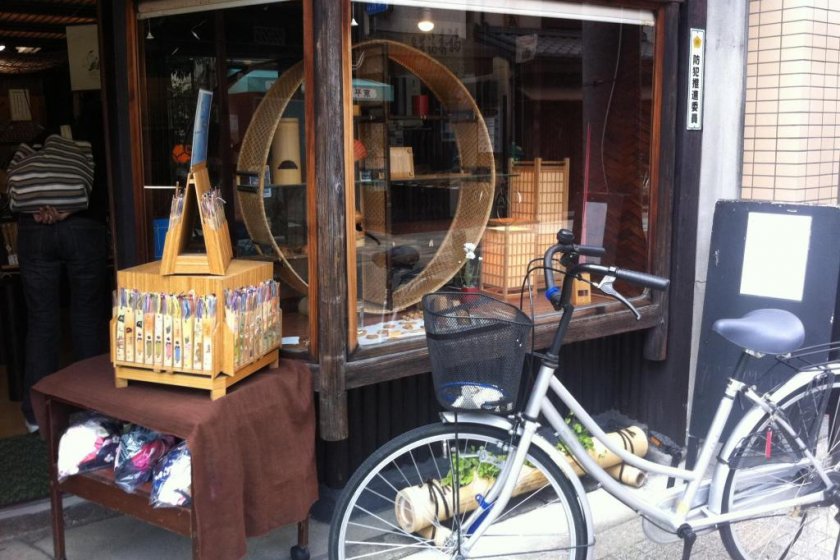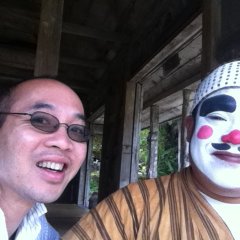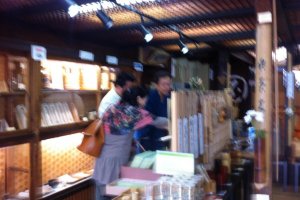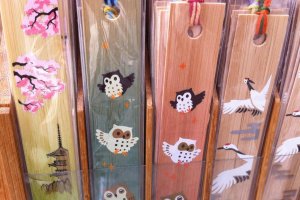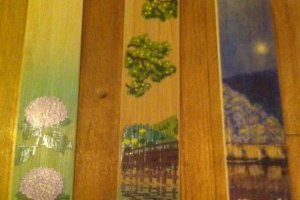Are you looking for an unique and easy to carry gift, one that represents Kyoto culture and history? Step inside Takano Chikko, a bamboo shop in the heart of Teramachi, Kyoto. See how the master artisans make these gifts and utensils from the bamboo stalks. The shop, set in a traditional Kyoto townhouse (Machiya) has recently won the award for the best souvenirs for travelers.
I was surprised at how many things can be made from bamboo, and all of them handmade. The shopkeeper here tells me the nature of bamboo means that mechanization cannot be used to bring out its best, so a handmade craft and art industry had grown up around it.
Bookmarks, chopsticks, macha tea whisks, and the flute-like shakuhachi are also made from bamboo. Some artisans take months to make a perfect shakuhachi, so this is a real labor of love and a great way to be in tune with nature. And speaking of Mother Nature, bamboo gives a third more oxygen and takes in over four times the amount of greenhouse gases compared to a similar sized tree. And even though it is a grass, it grows faster and is stronger than hardwood. It also flexible which means it can be bent into curved or rounded shapes without breaking. Perfect for making art. Even a simple bookmark in this shop is painted with varying Japanese motifs, from seasonal flowers to paintings of scenic vistas, like Arashiyama by moonlight. The hardest part was choosing among the hundreds of designs in the shop as my gift.
The stroll around the shop in the Teramachi street district is also very pleasant and a great way to sample Kyoto life as a local. The tree-lined street, especially between Shijo and the Imperial Palace, is filled with antique stores, old bookshops, intimate cafes and teahouses.
Teramachi means Temple District, a reference to its earlier days in the 15th century when the local Shogun moved a lot of temples to this area. Many of these temples remain today.
However, if your idea of a gift is more high tech, head south past Shijo dori, where you will find Kyoto’s equivalent of Nihonbashi or Akihabara, with all the electronics to dazzle you and your friends back home.There is a covered shopping street (shotengai) nearby where you can find name chops, and various bric-a-brac. There are also many manga and anime stores, and an English language bookstore called Random Walk.
Just moments away is the “Kitchen of Kyoto”, known officially as Nishiki Market. I love this huge outdoor food market, which has been here since the Heian Period more than a thousand years ago. Fresh fish, and the local specialty, Kyoto pickled vegetables are in abundance. Being a mountainside town, Kyoto is historically known for its local vegetables and confectionery. In fact many cooking classes come here as part of their initiation into Kyoto.The shops here are open six days, with fish shops closed on Sundays and other stalls on Wednesday.
